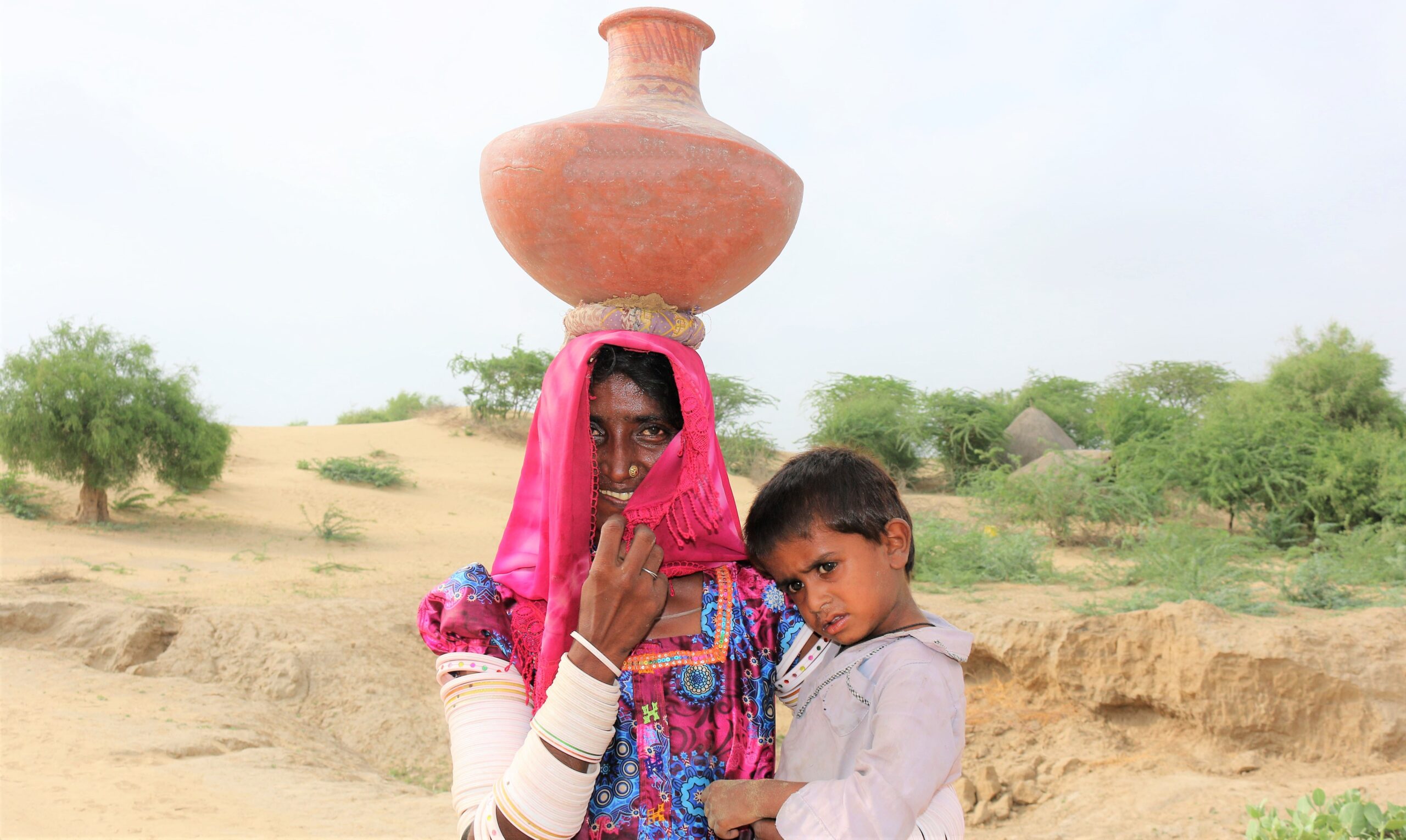
Water, Sanitation & Hygiene (WASH)
Rural Aid’s supporting partner rural communities in order to improve their quality of life and productivity,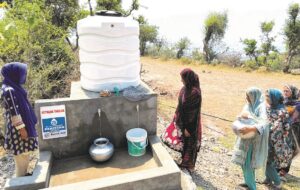 ensure water-stricken communities have adequate & sustainable access to clean water, improve knowledge, capability and skill for adoption of safer WASH practices, conservation and use of natural resources through community productive infrastructure schemes and improved water & sanitation facilities. Rural Aid is providing sustainable WASH services and ensuring open defecation free communities through affordable, appropriate technology and behavioral change.
ensure water-stricken communities have adequate & sustainable access to clean water, improve knowledge, capability and skill for adoption of safer WASH practices, conservation and use of natural resources through community productive infrastructure schemes and improved water & sanitation facilities. Rural Aid is providing sustainable WASH services and ensuring open defecation free communities through affordable, appropriate technology and behavioral change.
Rural Aid is implementing the virous community-based WASH initiatives and contributing the Rural Aid strategic plan 2023-2027 Strategic theme -2 “Increase equitable access to quality social services, including health, education, WASH and Strategic Objectives “Improved access to clean drinking water, public and environmental sanitation and hygiene promotion, strengthening of institutional mechanisms” and SDGs 3 Good Health and
Well-being, SDG 6 Clean Water and Sanitation and SDG 13 Climate Change.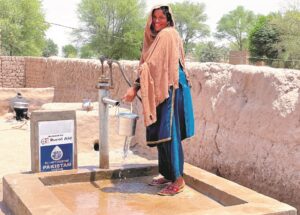
Rural Aid’s WASH program provides expertise and interventions aimed at saving lives and reducing illness by improving access to healthy and safe water, adequate sanitation, and improved hygiene. The WASH program works on long-term prevention and control measures for improving health, reducing poverty and improving socio-economic development as well as responding to emergencies and outbreaks of life-threatening illnesses. Rural Aid’s approach towards community led WASH includes promoting access to safe water, household water treatment options and water safety plans, which identify water quality threats in community water systems and water utilities, while implementing solutions to those threats; Improving the efficacy, sustainability and integration of hygiene and sanitation interventions into communities and institutions, such as schools; improving access to safe water, improved sanitation, sufficient hygiene infrastructure and adequate waste management in healthcare facilities in order to improve access to quality healthcare. In order to promote safe WASH practices in the communities, Rural Aid carried out the following projects in rural communities of Pakistan: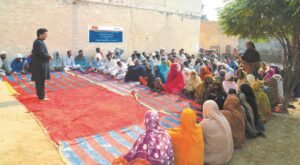
- Installation of 500 shallow tube wells for vulnerable communities of district Multan
- Installation of 467 shallow tube wells for vulnerable communities of district Khanewal
- Installation of 41 deep wells for vulnerable communities of district Kotli – AJK
Table of the key activities and cross cutting themes implemented:
|
Improved Accessibility |
Need Assessment for the identification and selection of the villages |
| Water Quality Assurance: Pre and Post water quality tests conducted for all the water sources to ensure the availability of clean drinking water and stop the spread of waterborne diseases. The quality test included biological appearance, turbidity, hardness, pH, and TDS of water. | |
| Procurement of the contractors/goods | |
| Installation of clean drinking water and safe sanitation facilities in water-stricken rural communities and schools | |
|
Hygiene Promotion |
Development of a behavior change strategy and a behavior change communication (BCC) plan |
| Development and dissemination of hygiene promotion IEC materials | |
| Implementation of hygiene promotion campaigns: The hygiene promotion sessions included messages regarding personal hygiene, domestic hygiene, clean environment, hygienic food, clean drinking water and waste water management. Besides the hygiene sessions for adults, interactive and innovative hygiene sessions for school children organized at local schools including art, quiz & speech competitions, sensitization and awareness activities. | |
|
Inclusion, Community Ownership & Capacity Building |
Involvement of all socially excluded groups i.e. men, women, youth, children, persons with disabilities, transgenders and religious minorities |
| Capacity Building of young community WASH promotors, formation & strengthening of community led WASH committees for continuity and sustainability of community level WASH facilities, advocacy and promotion of safer WASH practices
Training of WASH committees on operations, water source protection, water testing, maintenance and sustainability |
|
| Kitchen Gardening: Rural Aid educated and trained the partner communities on kitchen gardening including sowing practices, information about seasonal vegetables, plantation, manures, organic method, seeds, fruit plants and other inputs. | |
| Complaint Response Mechanism: Complaint response mechanism established at the village level to make the Rural Aid accountable to the beneficiaries. The CRM ensured protection and confidentiality of the complainant and also ensured that all the parties treated impartially. | |
|
Addressed Cross Cutting Themes |
All the cross-cutting themes – protection, cultural sensitivity, gender, DRR and environment protection ensured in project implementation. |
| Gender: The clean water facilities are installed at the locations easily accessible for women and children without fear of harassment or are save from the wild animals. Also, addressed other vulnerabilities, e.g., old age and PWDs during project design and implementation. | |
| DRR measures: The Washing pad of the water facilities constructed at least 10” above Natural Surface Level (NSL). It will make deep well resilient to 1’ flood water. | |
| Environmental Protection: The excess and waste water drained to kitchen garden and soakage pit respectively. Proper filled of bore with concrete to avoid external contamination, this prevents internal source from contamination. | |
| Participatory Monitoring: Participatory monitoring ensured during all the phases of project and the participatory monitoring is ensured at all stages of the project from the planning to execution and phase out. | |
| Do No Harm: The project has not affected local culture, religion, traditions and any other relevant factor. Do-No-Harm approach is reflected in all components of the project. |
The Rural Aid’s WASH program made significant contributions to the following sectors:
- Improved health & nutrition by reducing the incidence of waterborne diseases and respiratory infections amongst the children and women.
- Livelihoods: improve water security and reduce hunger, water for productive uses in growing vegetables & fruit trees on homestead forms and animal drinking.
- Increase School Enrollment Education: WASH projects have opened the path for stronger education outcomes, including protection of children especially girls from harm – availability of safe water at door step reduced the time spent of fetching water from far flung areas and labor involved in daily water parade.
- Women and Child protection & participation: WASH water projects are promoted and respected the rights and dignity of women, boys and girls, especially the vulnerable segments. The availability of safe drinking water at nearby locations reduced the risk of abuse and exploitation of both boys and girls, as well as minimized the risks of physical and sexual violence.
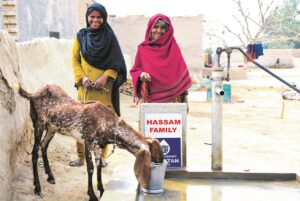
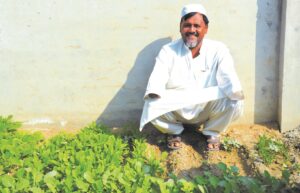
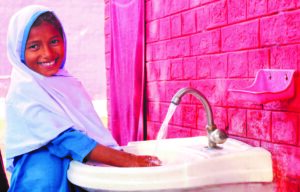
Recent Comments